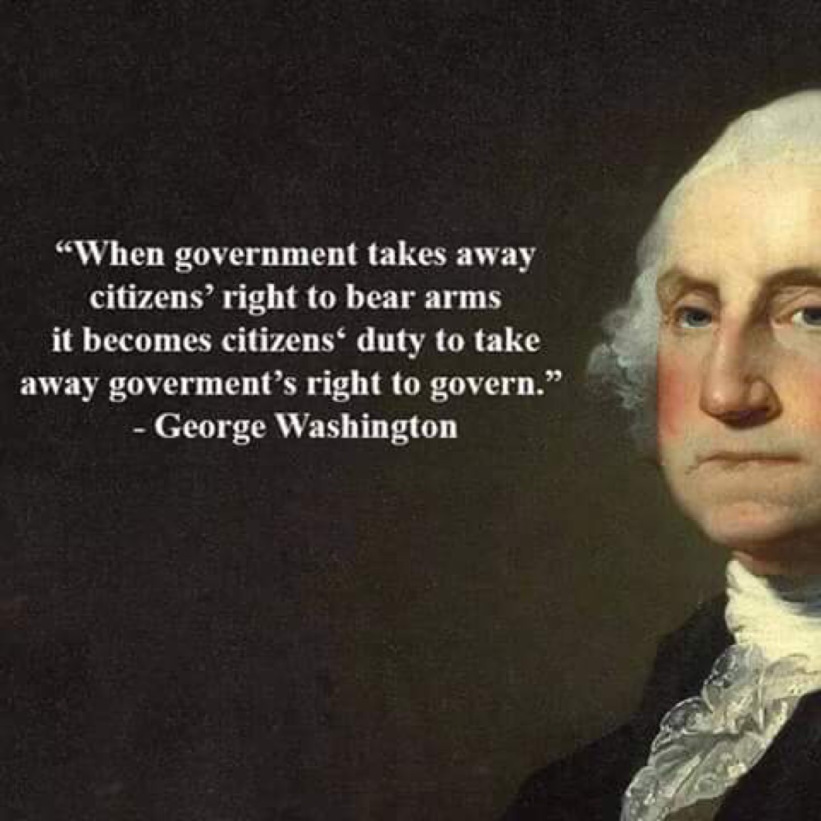
MICHIGAN PASSES FIREARMS FREEDOM ACT: NULLIFIES OBAAMA &o THE U.N.
Veil Of Politics
LANSING, Mich. (May 6, 2016) – Yesterday, a Michigan Senate committee passed a bill that declares firearms, firearms accessories and ammunition manufactured and maintained in the state of Michigan exempt from federal regulation. Passage of the bill would set the stage to nullify some [more] federal regulations on some [more] firearms in practice.
Sen. Phil Pavlov (R) introduced Senate Bill 0015 (SB0015) last year. The legislation declares that the federal government has no constitutional authority to regulate firearms that are manufactured and retained in the state. It reads, in part:
“A personal firearm, a firearm accessory, or ammunition that is manufactured commercially or privately in Michigan and that remains within the borders of Michigan is not subject to federal law or federal regulation, including registration, under the authority of congress to regulate interstate commerce. It is declared by the legislature that those items have not traveled in interstate commerce.”

The legislation is based on an originalist reading of Article I, Section 8, Clause 3 of the Constitution, the “interstate commerce clause,” noting that the power to regulate “interstate” commerce is different than the power to regulate “intrastate” commerce:
The regulation of intrastate commerce is vested in the states under amendments IX and X of the constitution of the United States
Yesterday, the Senate Committee on the Judiciary reported the bill out favorably. It now moves on to the Senate Committee of the Whole for further consideration.
NWO Usurped Feds Stop Efforts To Seize Largest Medical Marijuana Dispensary In California May 2016
IN PRACTICE
Passage of the legislation would open the door for gun manufacturers to set up shop in Michigan by creating a legal environment at the state level friendly to their businesses. The practical impact would depend on gun rights activists taking the next step and actually producing firearms within the state.
This could conceivably evolve in the same way state legalization of medical marijuana eventually overwhelmed federal prohibition. For example, once California legalized medicinal cannabis in the 90s, people slowly began opening dispensaries, despite the fact federal laws remained on the books.
Despite concerted efforts to shut the fledgling industry down through both enforcement and legal efforts in federal court, medicinal cannabis businesses continued to proliferate and thrive. Soon other states followed in California’s footsteps.
“At some point, it reaches a critical mass and the prohibition becomes more and more unenforceable by government,” Tenth Amendment Center founder and executive director Michael Boldin said. “There’s no reason that gun owners and manufacturers couldn’t do the same.”
Passage of SB0015 would set the stage for the same type movement for firearms freedom.
THE COMMERCE POWER
The Constitution states, “The Congress shall have power… to regulate Commerce with foreign Nations, and among the several States, and with the Indian tribes…The Congress shall have Power…to make all Laws which shall be necessary and proper for carrying into Execution the foregoing Powers, and all other Powers vested by this Constitution in the Government of the United States, or in any Department or Officer thereof.”
Robert Natelson notes in The Original Constitution that there are misconceptions of the commerce clause in the Constitution, that the regulation of commerce is not exclusively enumerated to Congress and that commerce did not include everything under the sun. The states still have immense power to regulate commerce within their own state and even with foreign nations.
Natelson writes, “Federalists repeatedly represented that the Constitution would leave the states as the sole government regulators of the vast majority of human actives. They affirmed that the central government would have almost no role over…use of personal property outside commerce, wills and inheritance, business regulation and licensing, manufacturing” and others.
Also Natelson writes, “The Constitution banned states from imposing duties on imports or exports without the consent of Congress…otherwise, states were free to regulate commerce with foreign nations–and even to impose embargoes on goods from outside–subject to preemption by Congress or by federal treaties.”
.jpg)
Bill Of Rights Are Unalienable Rights ‘ Natural Rights’ they are NOT Inalienable Rights. Inalienable Rights are ‘government granted’ a legal ease trapping in the court system.
Know Your Rights Natural vs granted civil.
https://politicalvelcraft.org/2016/05/09/michigan-passes-firearms-freedom-act-nullifies-obama-the-u-n/

